Corinna Gosmaro
10.04.2018 – 08.06.2018
Exhibition Views
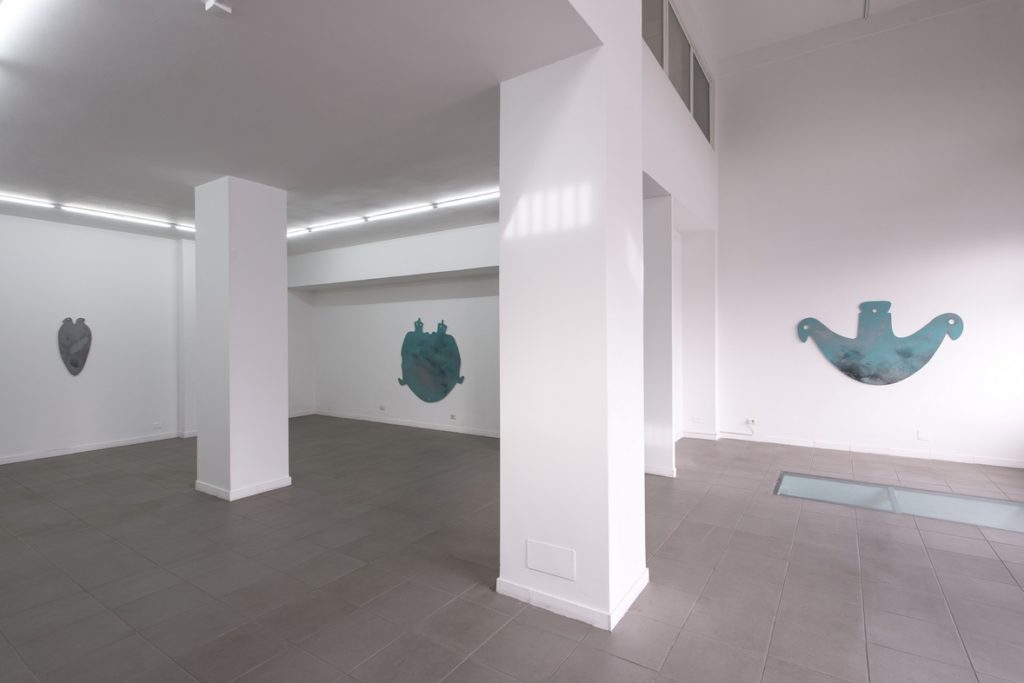
Talking Knots, installation view (ground floor), The Gallery Apart Roma, photo Giorgio Benni 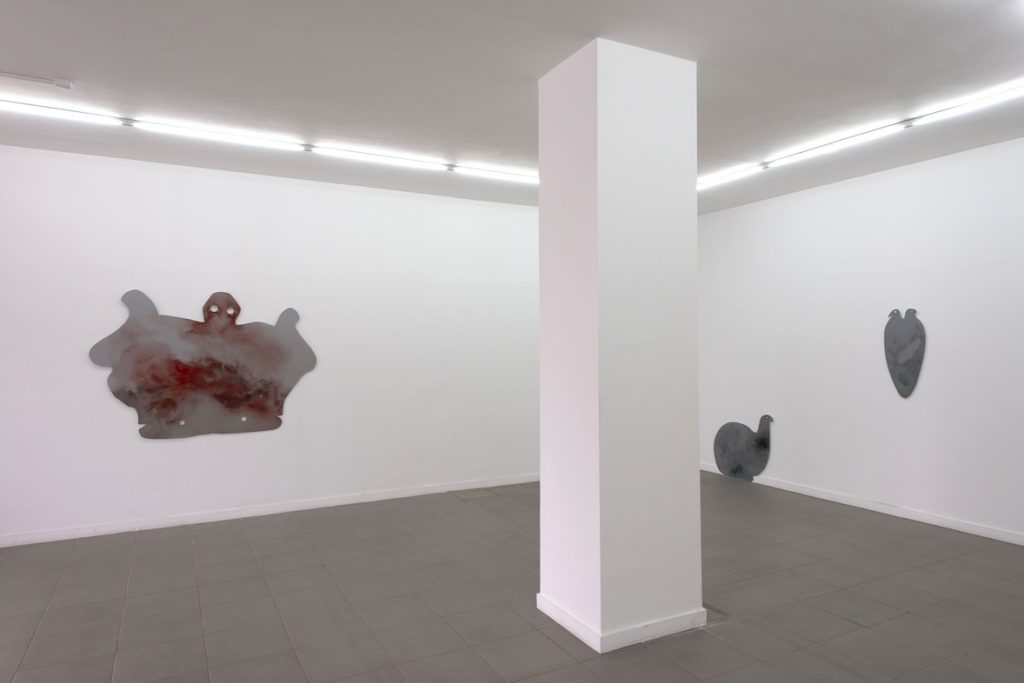
Talking Knots, installation view (ground floor), The Gallery Apart Roma, photo Giorgio Benni 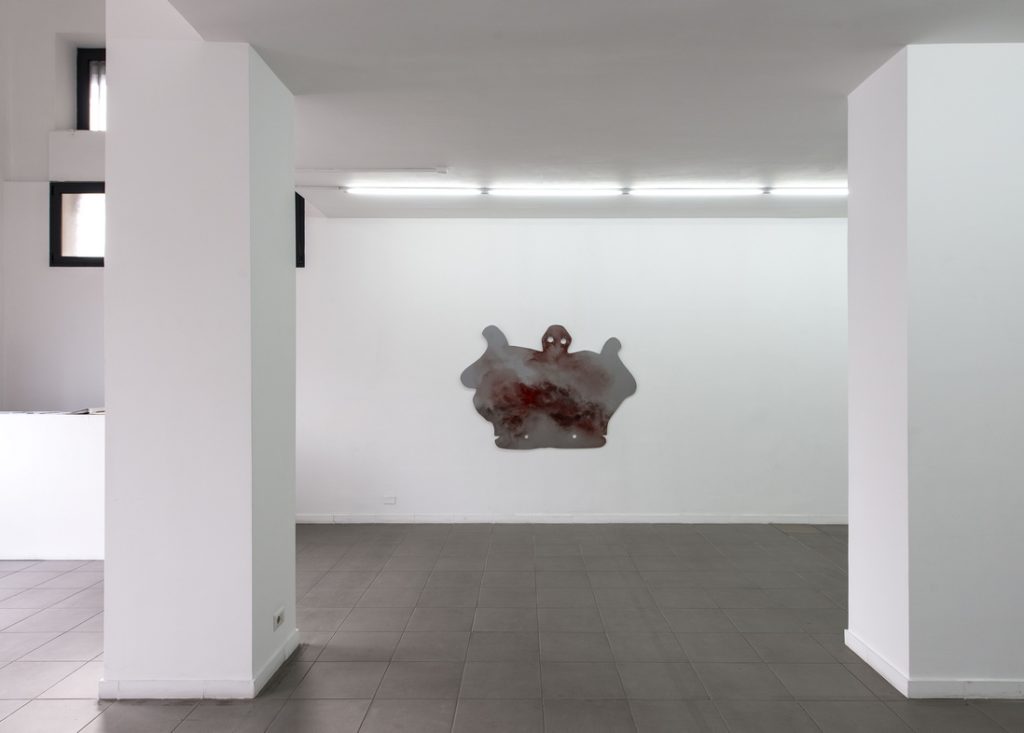
Talking Knots, installation view (ground floor), The Gallery Apart Roma, photo Giorgio Benni 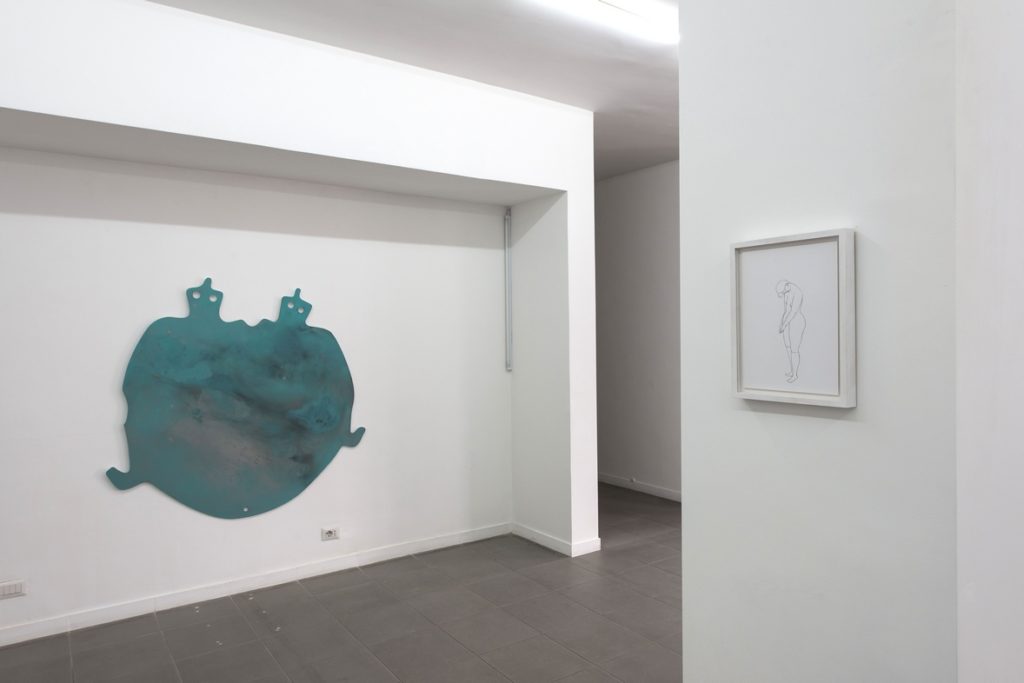
Talking Knots, installation view (ground floor), The Gallery Apart Roma, photo Giorgio Benni 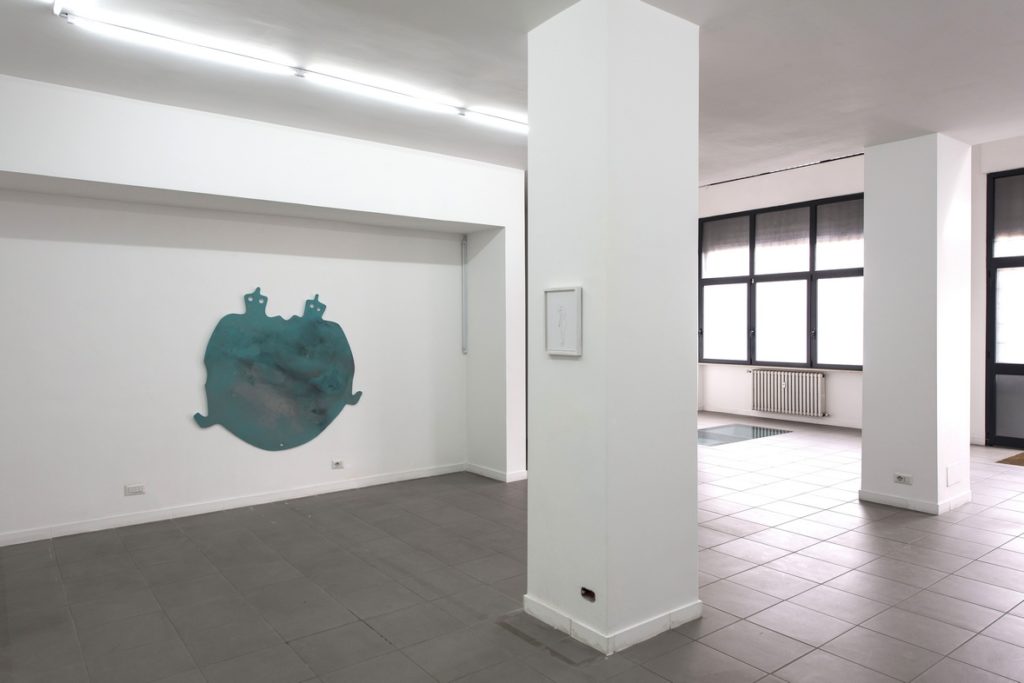
Talking Knots, installation view (ground floor), The Gallery Apart Roma, photo Giorgio Benni 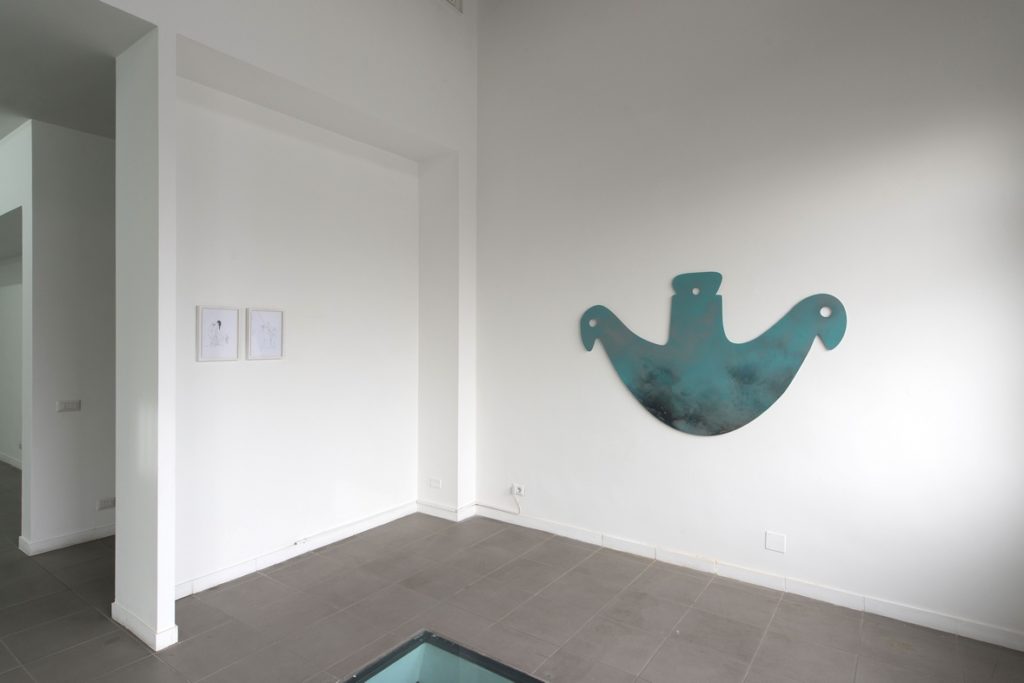
Talking Knots, installation view (ground floor), The Gallery Apart Roma, photo Giorgio Benni 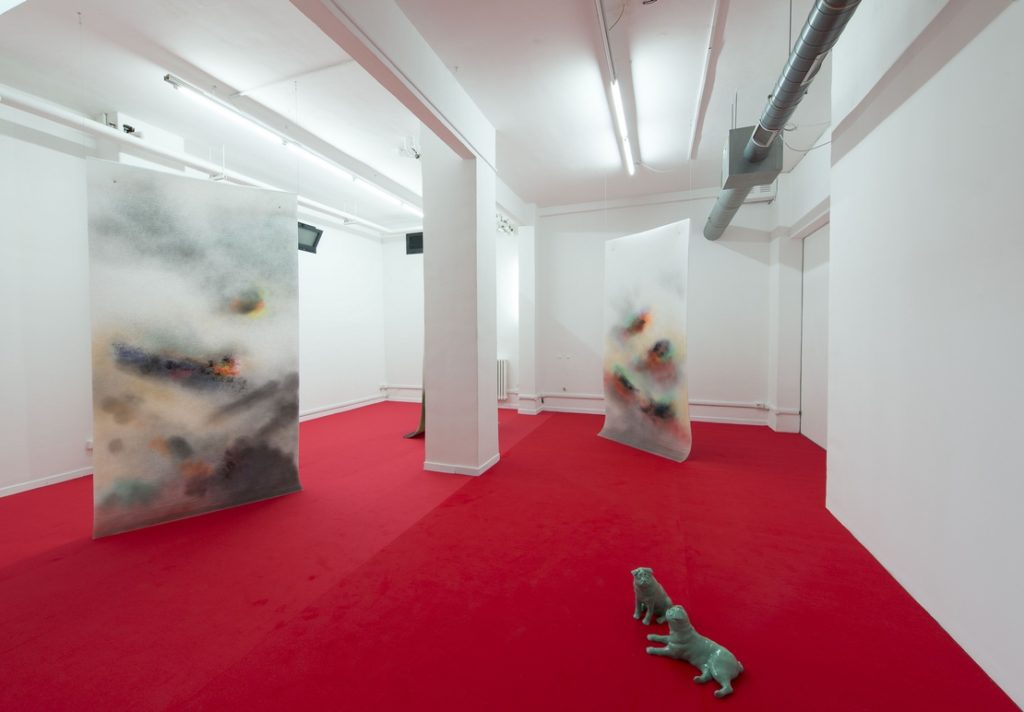
Talking Knots, installation view (basement), The Gallery Apart Roma, photo Giorgio Benni 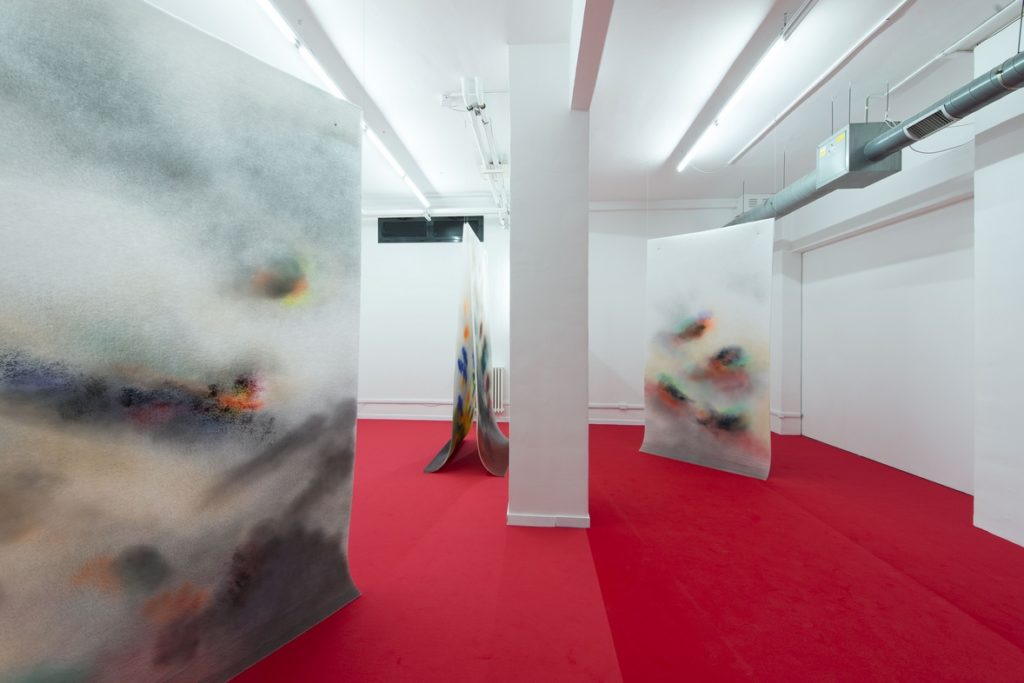
Talking Knots, installation view (basement), The Gallery Apart Roma, photo Giorgio Benni 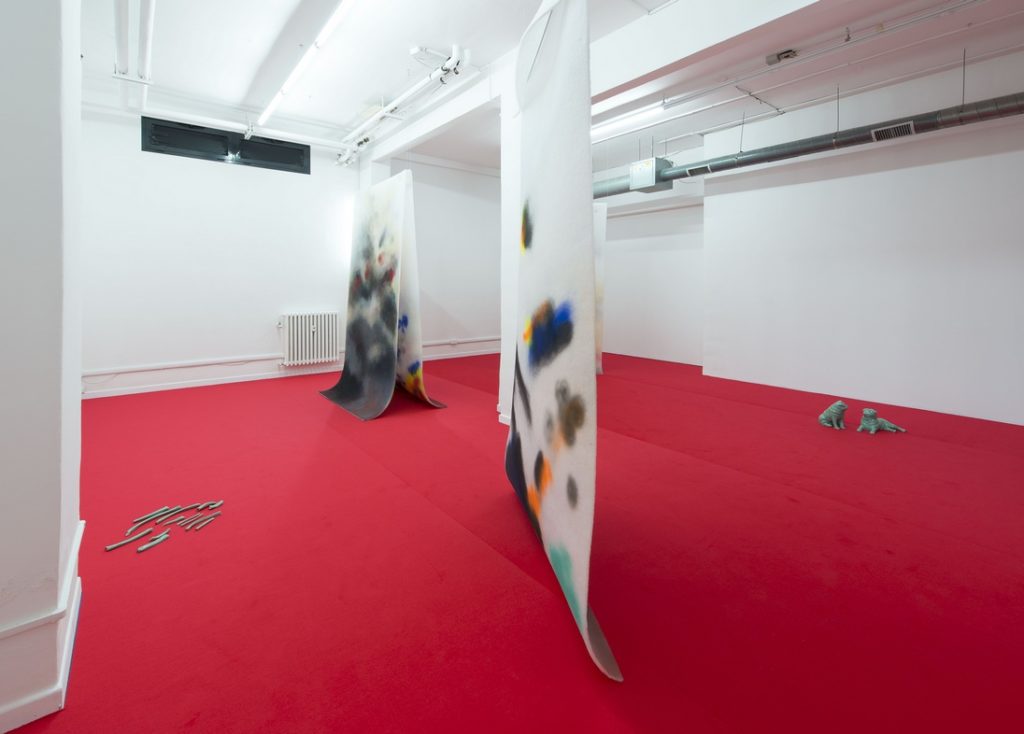
Talking Knots, installation view (basement), The Gallery Apart Roma, photo Giorgio Benni 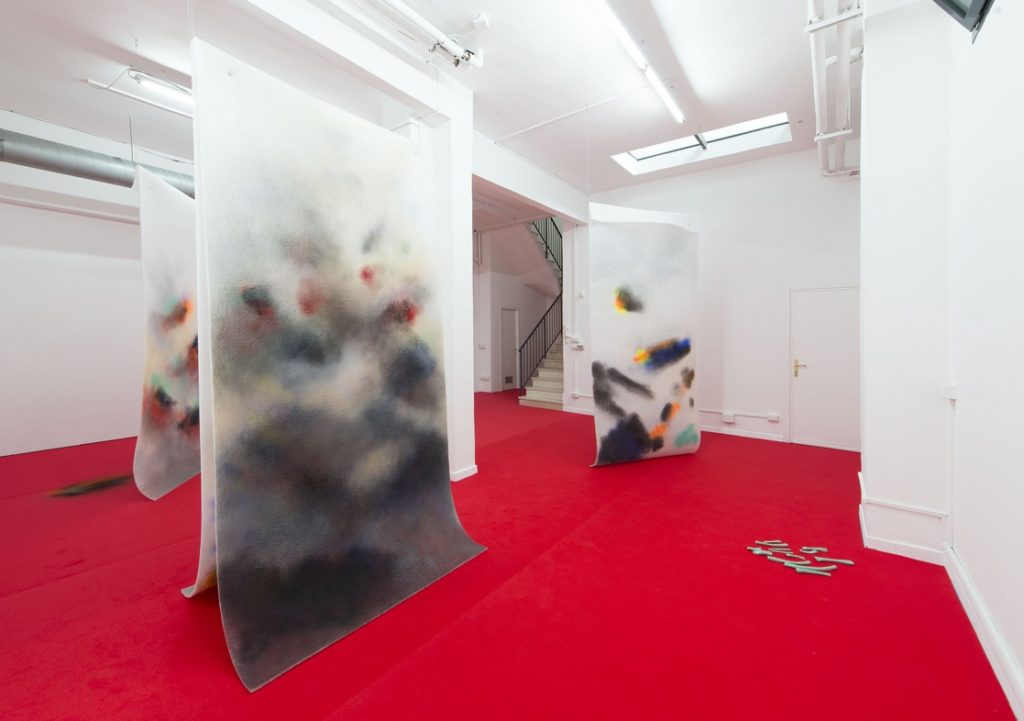
Talking Knots, installation view (basement), The Gallery Apart Roma, photo Giorgio Benni 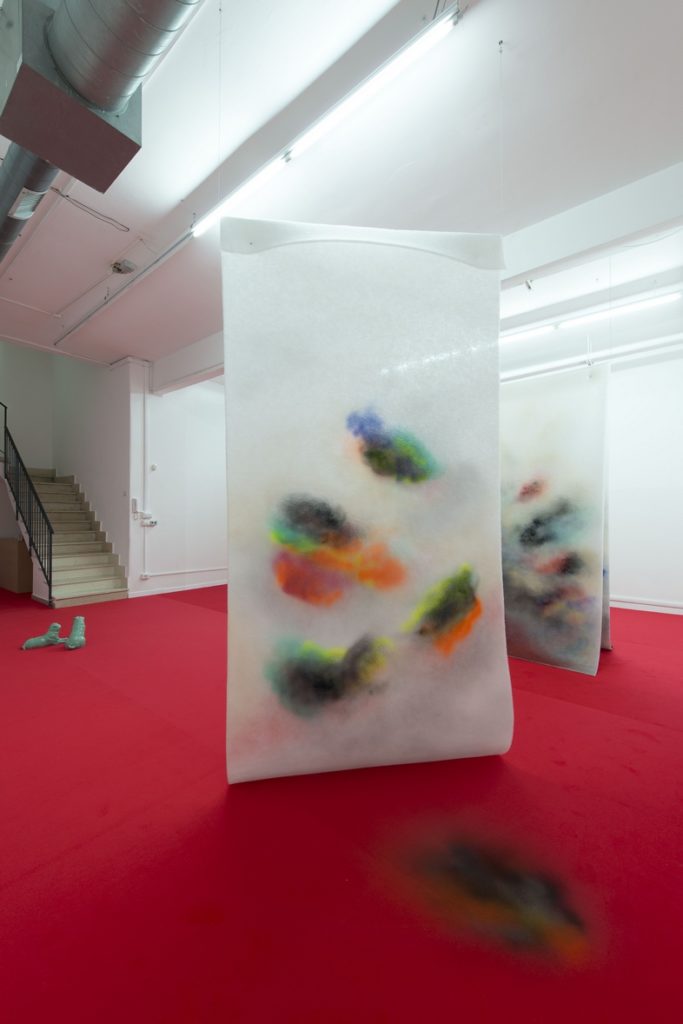
Talking Knots, installation view (basement), The Gallery Apart Roma, photo Giorgio Benni 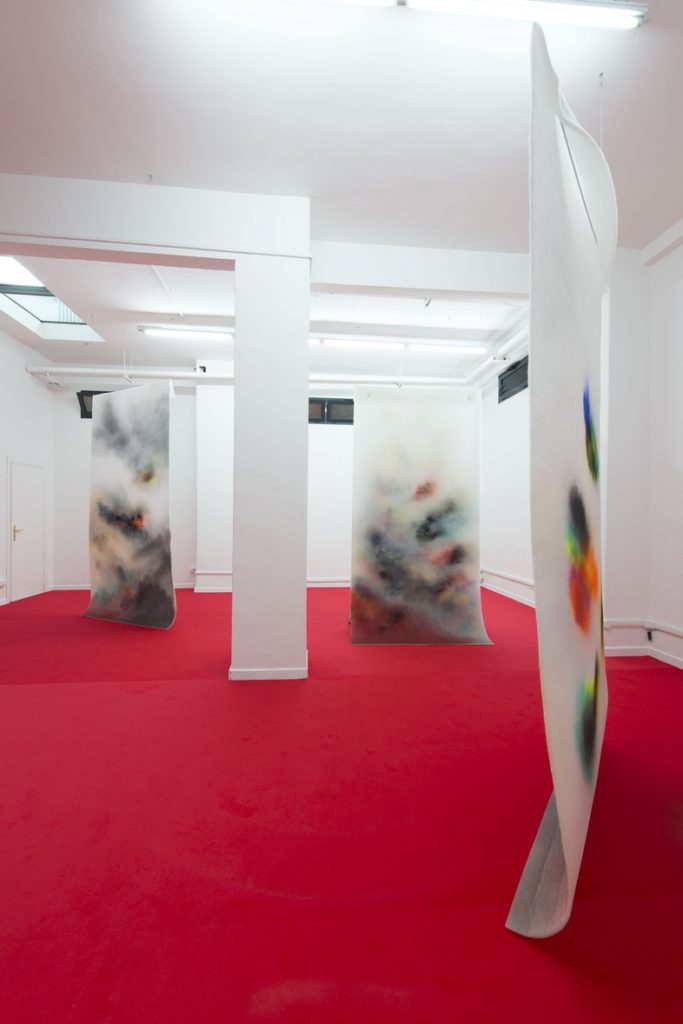
Talking Knots, installation view (basement), The Gallery Apart Roma, photo Giorgio Benni 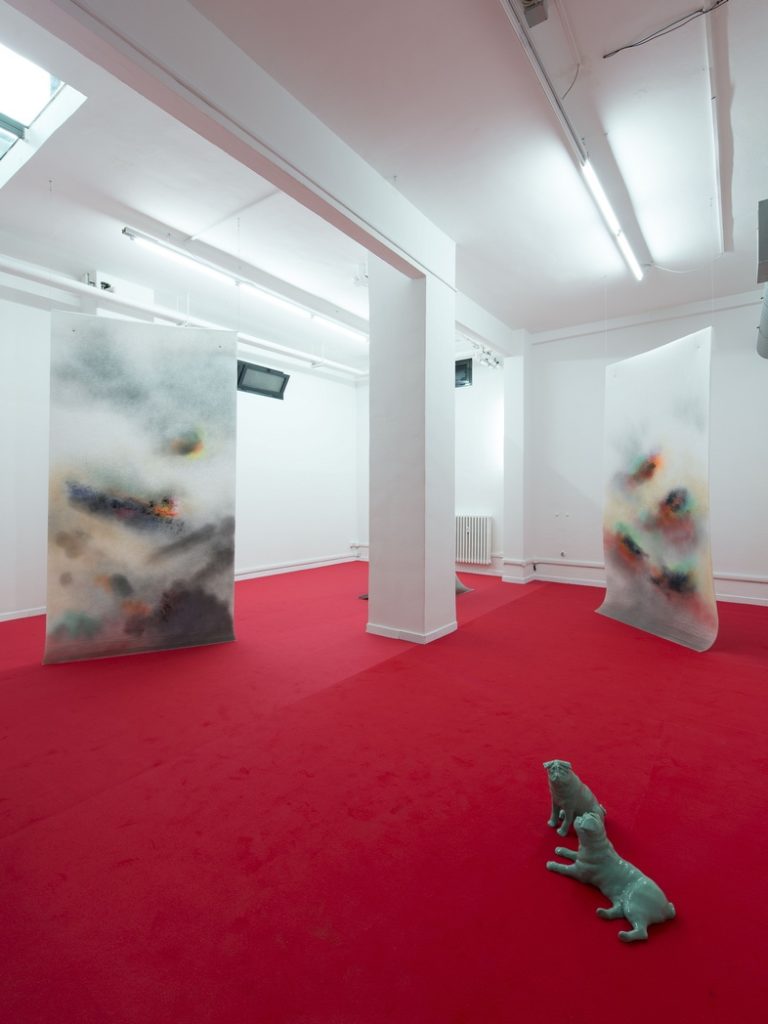
Talking Knots, installation view (basement), The Gallery Apart Roma, photo Giorgio Benni
Works
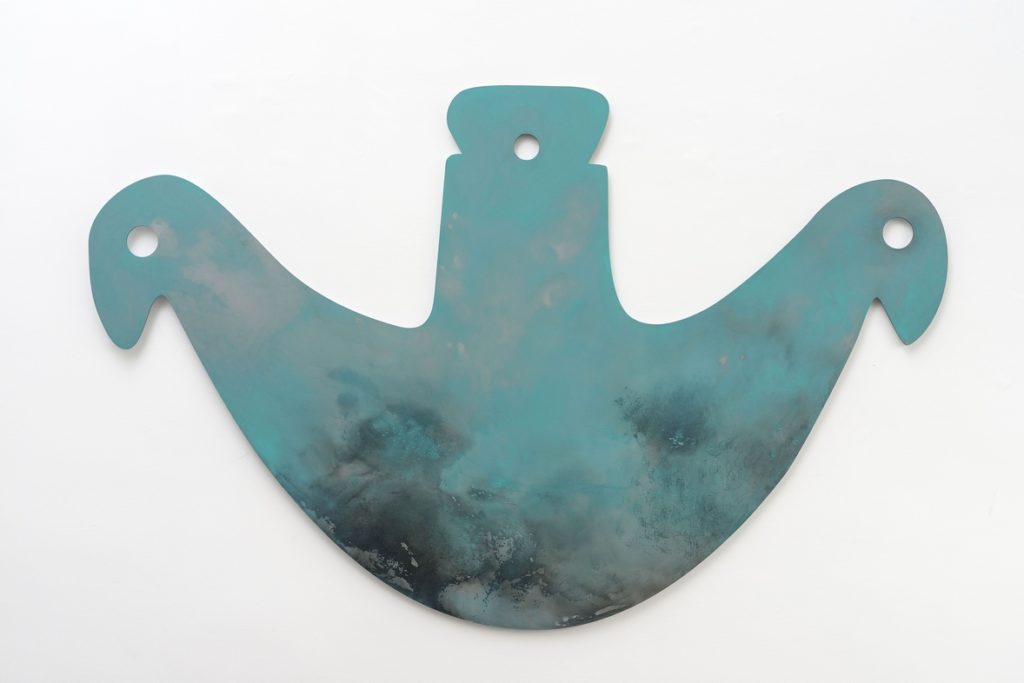
Double bird palette, 2018, pigments and oil on aluminium composite material (Dibond®), 110×173 cm, photo Giorgio Benni 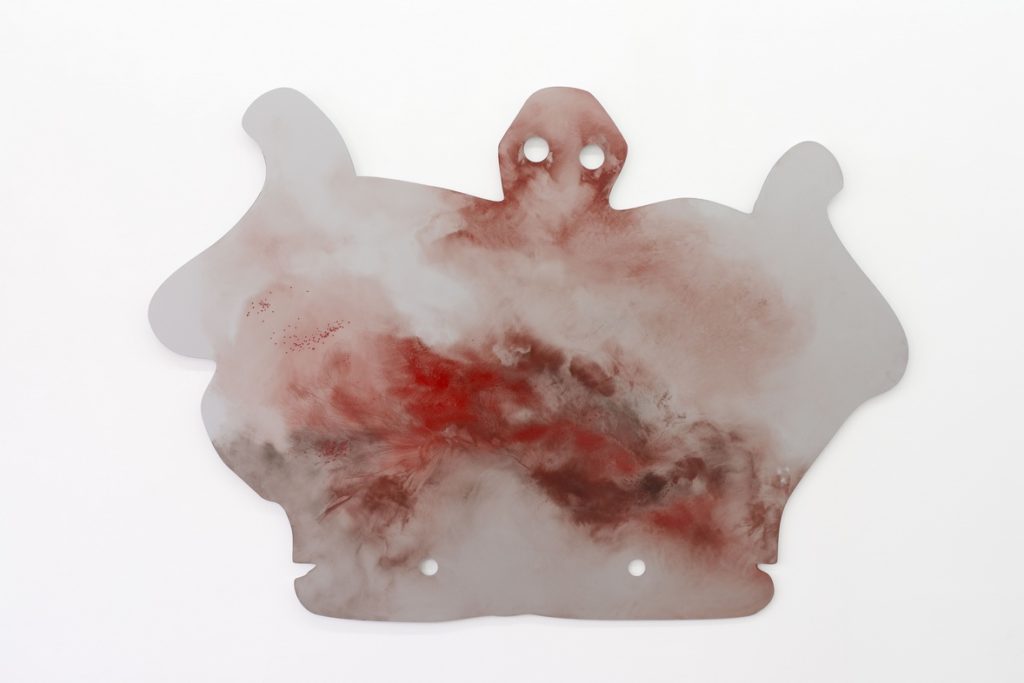
Turtle palette, 2018, pigments and oil on aluminium composite material (Dibond®), 126×181 cm, photo Giorgio Benni 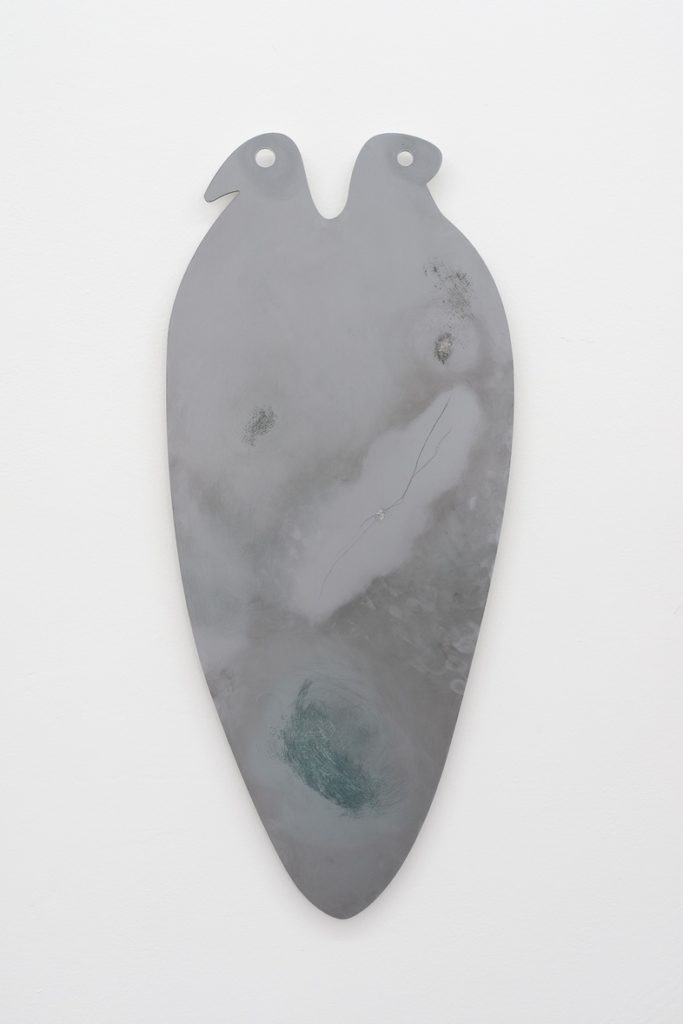
Double bird palette, 2017, pigments and oil on aluminium composite material (Dibond®), 80×36 cm, photo Giorgio Benni 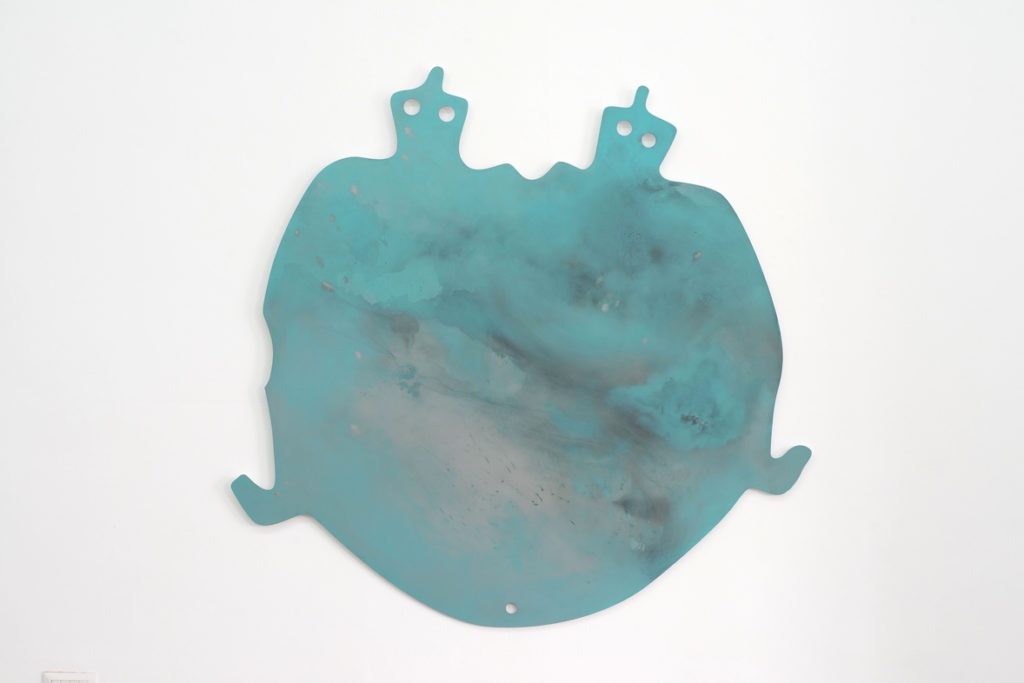
Double turtle palette, 2018, pigments and oil on aluminium composite material (Dibond®), 152×144 cm, photo Giorgio Benni 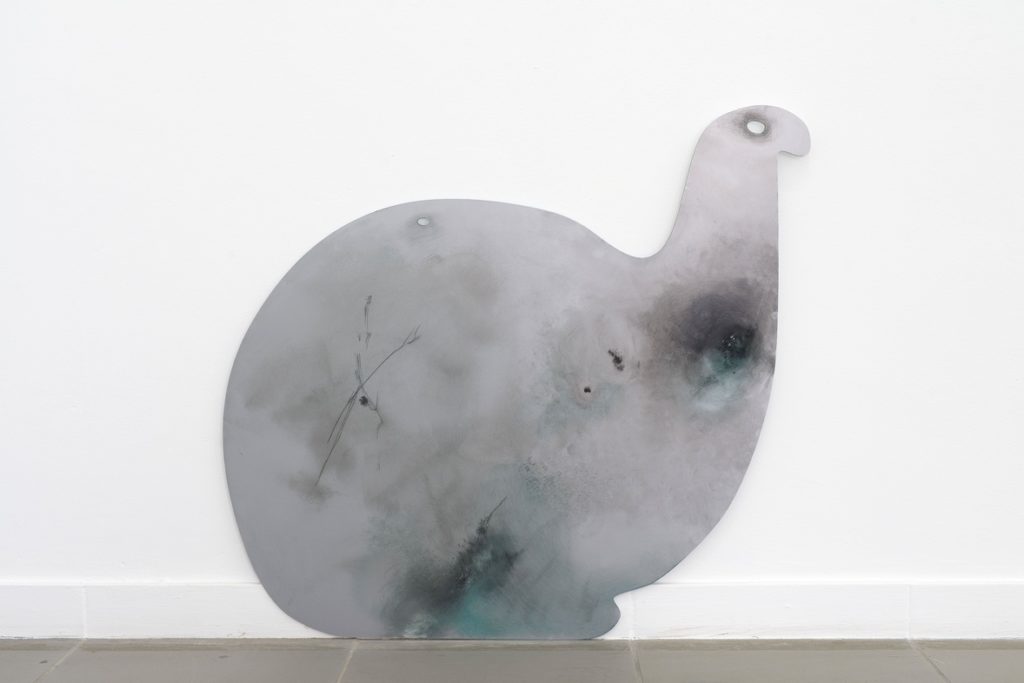
Guinea fowl palette, 2018, pigments and oil on aluminium composite material (Dibond®), 76×84 cm, photo Giorgio Benni 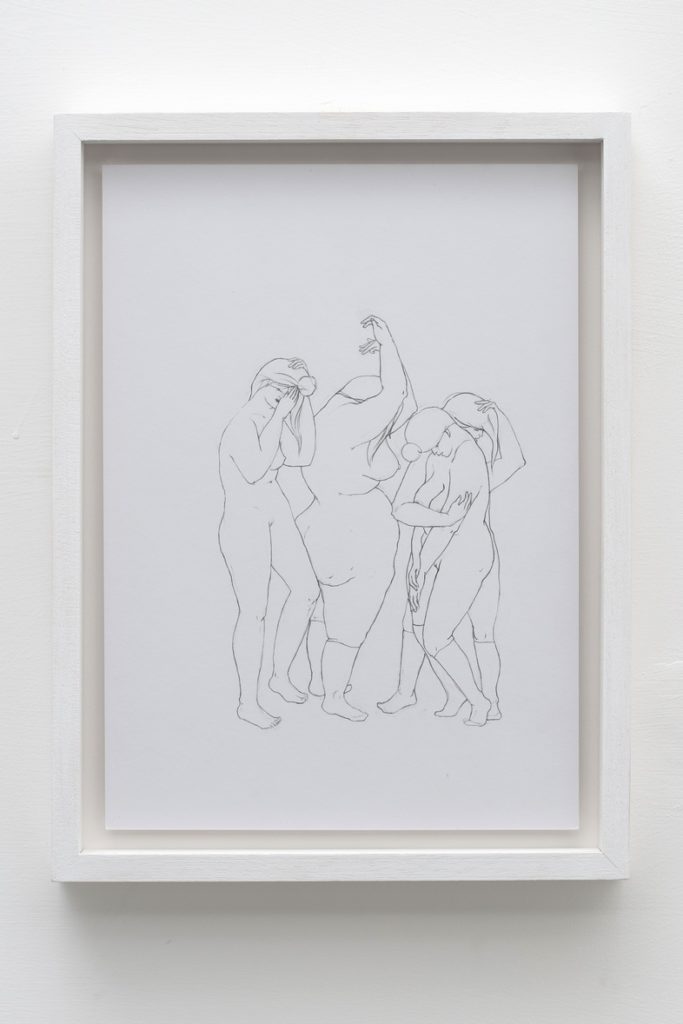
Women, 2017, pencil on paper 30×21 cm, photo Giorgio Benni 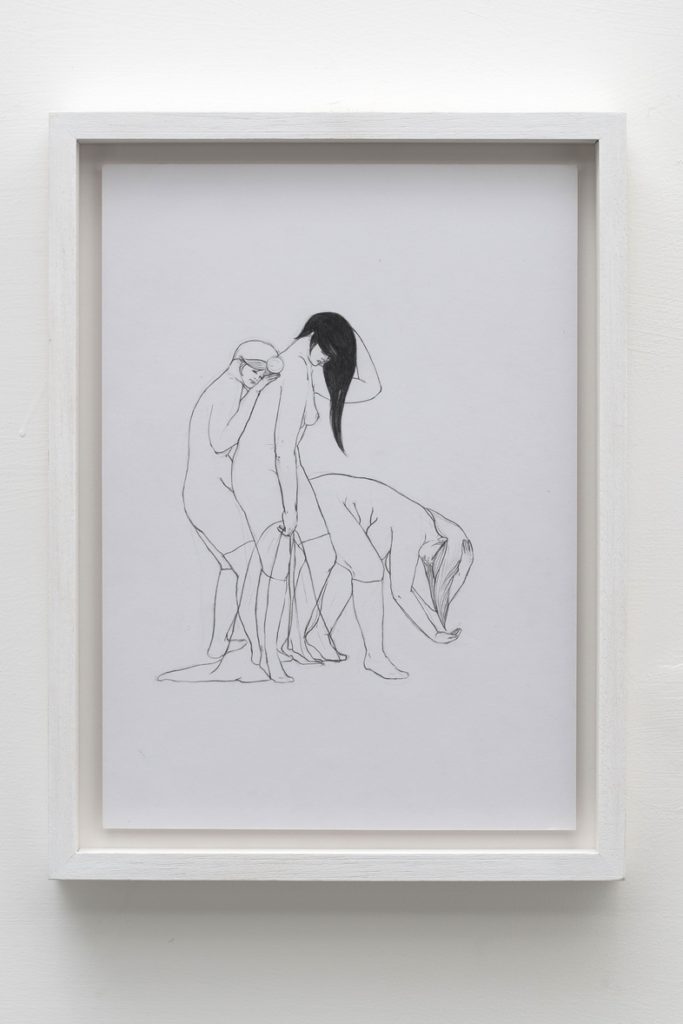
Women, 2017, pencil on paper 30×21 cm, photo Giorgio Benni 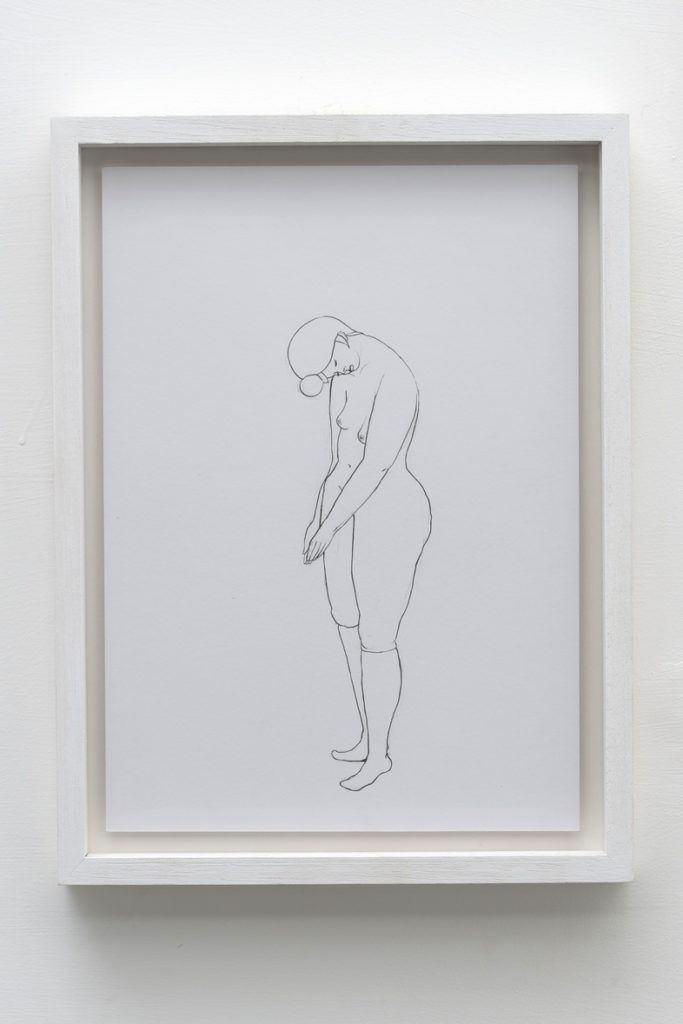
Woman, 2017, pencil on paper 30×21 cm, photo Giorgio Benni 
sx: Babi, 2018, ceramic, 29×27 cm; dx: Fœdis, 2018, ceramic, 21×44 cm, photo Giorgio Benni 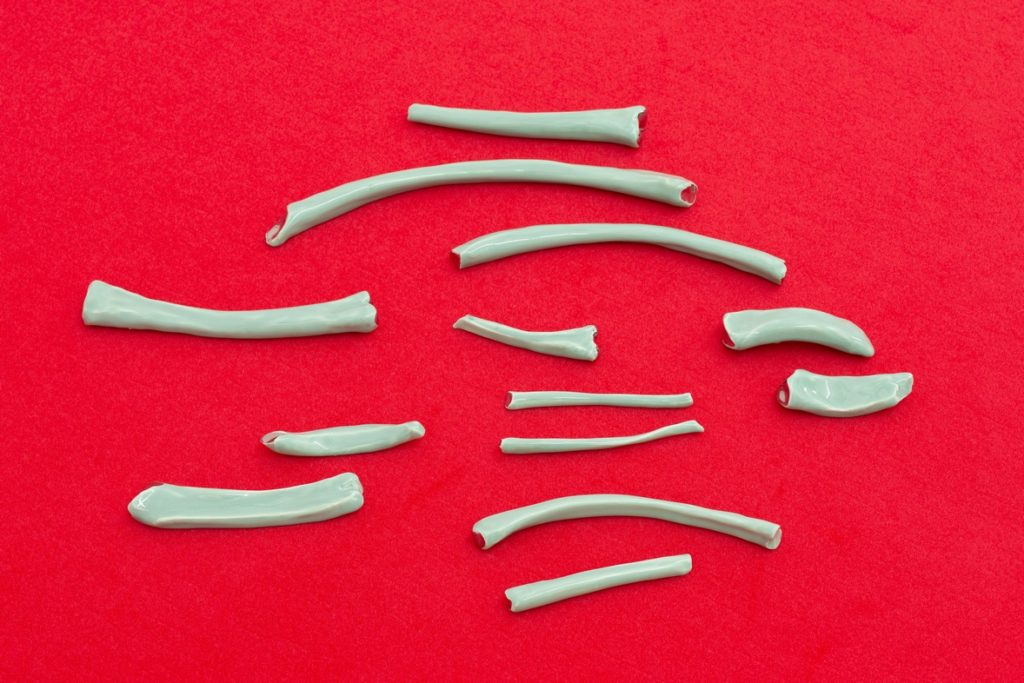
Shimmering thoughts, 2018, ceramic, variable dimensions, photo Giorgio Benni 
Skies #1, 2018, oil and spray paint on polyester filter, 300×150 cm, photo Giorgio Benni 
Skies #2, 2018, oil and spray paint on polyester filter, 300×150 cm, photo Giorgio Benni 
Skies #3, 2018, oil and spray paint on polyester filter, 300×150 cm, photo Giorgio Benni 
Skies #4, 2018, oil and spray paint on polyester filter, 300×150 cm, photo Giorgio Benni 
Fædis, ceramic, 21×44 cm, photo Giorgio Benni 
Babi, 2018, ceramic, 29×27 cm, photo Giorgio Benni
The Gallery Apart is proud to present Talking Knots, the first solo show in the gallery by Corinna Gosmaro (1987), an artist currently taking part in the residency programme at the Cité Internationale des Arts in Paris (from which she has been selected through the main programme Les lauréats), and who lived for a few months in Rome as winner of the 6ARTISTA competition, the residency programme for artists under 35, organised by the Fondazione Pastificio Cerere.
The exhibition’s title, which evokes objects formed by fine threads of ropes interlacing each other that in some South American cultures and traditions used to have ornamental, ritual and communicative functions, provides a key to interpreting the new collection of works presented by Gomarro.
Blending the here and now of the painting act, with the temporally, geographically and culturally cross-cutting nature of the symbol, the artist is interested in manipulating some major elements that have accompanied mankind throughout history, characterizing its passages and evolutions through their intrinsic expressive power. Instead of drawing upon overused symbols due to ductility of their contents – e.g., the rainbow, which in the Genesis is the covenant established between God and every living creature on earth in the aftermath of the great flood, and later source of numerous meanings in the Jewish, Indian, Greek, Chinese mythology, until becoming a symbol of political and social struggle, from the post-apartheid South Africa to Greenpeace, and from the Gay Pride to the peace flag – Gosmaro chooses the cosmetic palettes used in the predynastic Egypt, a more refined, almost concealed, symbol that evokes a fundamental and, at the same time, paradoxical aspect of the human condition: the connection between the desire of preservation and of death, which has led modern anthropology to match the first cultural manifestations with the beginning of the habit of burying the dead and with the first funeral rites.
Used to grind cosmetic paints in order to obtain pigments, palettes soon became and remained for centuries commemorative and ceremonial items with different meanings, to become later a language in the form of proto-writing and transition moment towards hieroglyphs. The research conducted by Gosmaro is therefore interested not so much in the field of ritual related to death, but rather in the rituality related to the archetypical, expressive and iconic meaning of an object that cannot be interpreted univocally and which indeed involves multi-faceted meanings (offer, ornament, identity sign, magical instrument).
The palettes by Gosmaro evokes the shape of the original that in predynastic Egypt accompanied the everyday life as well as the journey towards the afterworld as funerary goods. Palettes were shaped in animal silhouettes related to the preponderant presence of the Nile river (fish, turtles, water birds, hippopotami), and that re-underline the universal value of the object and its prerogative of including rituality, artistic insight and cultural innovation. The formal identity between the objects used ritually and those used as a decoration – the latter characterized by the dominance of the colour red – introduces to the environment that Gosmaro has organized in the basement of the gallery. The experience of entering into a sort of palette-environment characterized by a strong domestic flavour is reinforced by the presence of a pair of pottery dogs (still a reference to the animals). Here the painting becomes enveloping, trace of it can be found in the carpet that randomly includes the artistic act that the artist realized through the spray painting, whereas big filters hang from the wall as an explicit reference to the Scapes, works that Gosmaro has been realizing for a long time by painting industrial filters to outline not only ethereal figures evoking the idea of landscape but also material as they cross and pervade the weave of the medium.
Cultural paradigms, domestic scenes, evocation of landscapes that converge in the work by Gosmaro and in the exhibit Talking Knots to create a proxemic universe which, on the one hand, represent the attitude of the artist to interpret her own creativity in global and – once again – cross-cutting terms, both with regard to the contents and time; on the other hand, it underlines the communicative function of the primeval images and for this reason timeless, a function that the artist exalts through the choice of the medium for her painting: the dibond, a material used widespread for the display and signage markets and in photo printing, the industrial filters that with their structure evoke selection and depuration (two essential functions in the communication and information fields), and finally ceramic which, by definition, is able to blend art and handcrafting through a common language and craftsmanship and handed down over the centuries.
The Gallery Apart è orgogliosa di presentare Talking Knots, la prima personale in galleria di Corinna Gosmaro (1987), artista attualmente in residenza alla Cité Internationale des Arts di Parigi (da cui è stata direttamente selezionata nell’ambito del programma principale Les lauréats) e che ha trascorso diversi mesi a Roma in quanto vincitrice del concorso 6ARTISTA, il programma di residenze per artisti under 35 della Fondazione Pastificio Cerere.
Già il titolo, che richiama oggetti composti da insiemi di cordicelle variamente intrecciate tra loro che in alcune culture sudamericane svolgevano funzioni ornamentali, rituali e comunicative, ci fornisce una chiave di lettura del corpo di nuovi lavori che Gosmaro propone in mostra.
L’artista è interessata a manipolare, saldando il qui e ora del gesto pittorico alla trasversalità temporale, geografica e culturale del simbolo, alcuni elementi primari che hanno accompagnato la storia dell’umanità caratterizzandone passaggi ed evoluzioni grazie alla loro intrinseca forza espressiva. Anziché ricorrere a simboli inflazionati proprio per la loro duttilità di contenuti – si pensi all’arcobaleno, nella Genesi patto tra Dio e l’uomo all’indomani del diluvio universale e poi fonte di innumerevoli significanti nelle mitologie ebraica, indiana, greca, cinese, fino a diventare simbolo politico e di lotta sociale, dal Sudafrica post apartheid a Greenpeace, fino al Gay Pride e alla bandiera della pace – Gosmaro sceglie le palette cosmetiche del periodo predinastico egizio, un simbolo più raffinato, quasi nascosto, che richiama un aspetto fondante e nel contempo paradossale della condizione umana, cioè la connessione tra le pulsioni di conservazione e di morte che ha indotto l’antropologia moderna a far coincidere le prime manifestazioni culturali con l’avvio dell’abitudine di seppellire i morti e con i primi riti funebri.
Nate per macinare minerali in modo da ottenere pigmenti, le palette diventano presto e restano per secoli oggetti commemorativi e cerimoniali dai molteplici significati, fino a diventare un linguaggio sottoforma di protoscrittura e momento di passaggio verso i geroglifici. La ricerca di Gosmaro è dunque rivolta non tanto all’ambito della ritualità connessa alla morte, quanto al significato archetipo, espressivo e iconico di un oggetto non interpretabile in termini di univocità di senso e che anzi racchiude storicamente messaggi poliedrici (offerta, decorazione, segno identitario, strumento magico).
Le palette di Gosmaro richiamano le forme di quelle originarie che nell’Egitto predinastico accompagnavano tanto la quotidianità domestica quanto il viaggio verso l’aldilà attraverso il corredo funerario. Si tratta di figure zoomorfe legate alla preponderante presenza del Nilo (pesci, tartarughe, uccelli acquatici, ippopotami) e che risottolineano la valenza universale dell’oggetto e la sua prerogativa di contenere simultaneamente ritualità, ingegno artistico e innovazione culturale. E proprio l’identità formale tra gli oggetti utilizzati ritualmente e quelli usati decorativamente – questi ultimi caratterizzati dalla preponderanza del colore rosso – introduce all’ambiente che Gosmaro realizza nel basement della galleria. L’esperienza di entrare in una sorta di paletta-ambiente dal forte sapore domestico è ribadita dalla presenza di una coppia di cani in ceramica (ancora il richiamo all’animale). Qui la pittura diventa avvolgente, se ne ritrova traccia nella moquette che raccoglie randomicamente l’intervento gestuale che l’artista realizza con la pittura spay, mentre dal soffitto scendono grandi filtri dipinti che si collegano esplicitamente agli Scapes, opere che Gosmaro da tempo realizza dipingendo filtri industriali a formare immagini tanto eteree nel loro evocare l’idea di paesaggio quanto materiche nel loro attraversare e pervadere la trama del supporto.
Paradigmi culturali, scenari domestici, evocazione di paesaggi convergono nel lavoro di Gosmaro e nella mostra Talking Knots a creare un universo prossemico che da un lato ci segnala l’attitudine dell’artista a declinare la propria creatività in termini globali e – di nuovo – temporalmente e contenutisticamente trasversali, dall’altro evidenzia la funzione comunicativa delle immagini primordiali e perciò senza tempo, funzione che l’artista esalta in particolare attraverso la scelta del materiale di supporto per la sua pittura: il dibond, molto diffuso nell’industria pubblicitaria per la cartellonistica e la stampa fotografica, i filtri industriali che strutturalmente evocano selezione e depurazione (entrambe funzioni indispensabili sul fronte della comunicazione e dell’informazione) e infine la ceramica supporto per definizione capace di coniugare arte e artigianato attraverso un linguaggio condiviso e tramandato nei secoli.
share on